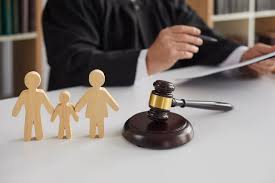There are a lot of things that worry parents and guardians about their children. Your first concern is for your child’s security, health, and happiness. Parents strive to raise their children well as they leave the house, hoping they make wise decisions. But trouble can arise even for the most well-behaved kids. If your minor child needs legal representation during a school disciplinary hearing or has been guilty of a crime of any kind, get in contact with a juvenile defense lawyer right away. In this article, you will learn more about what a juvenile defense attorney is, how to get one, and examples of juvenile crimes.
What is Juvenile Attorney?
A juvenile attorney is a lawyer competent to represent adolescents in juvenile court hearings. Although state laws may vary, most states regard 18 years of age or younger as the legal age of majority.
Common Examples of Juvenile Crimes?
Even though juvenile attorneys typically work to defend young people who violate the law or commit a crime, juvenile hearings are civil matters, not criminal ones. As such, even though a child’s illegal behavior may warrant their appearance before a juvenile court, they will typically be “delinquent” instead of guilty of a crime.
Some common examples of juvenile crimes are:
- Vandalism or graffiti charges
- Shoplifting
- Petty theft
- Truancy
- Running away from home
- Simple assault
- Underage drinking
- Ignoring the curfew
- Driving or riding in a stolen car.
Upon designating a minor as a delinquent, the court retains the authority to impose appropriate punishment. While some trials may result in a child having to go to a juvenile detention center, generally speaking, minors have more options when it comes to sentences than adult offenders. A juvenile court might, for instance, mandate that a kid follow curfews, go to counseling, or perform a certain number of hours of community service.
What Support Can a Juvenile Defense Attorney Provide During a School Disciplinary Hearing?
Some schools allow you to bring an advisor to these sessions, whereas others prohibit you from bringing a counselor. A juvenile defense attorney can serve as an advisor in the following capacities:
- Recognize the procedure and the costs involved.
- Get your case presentation ready.
- Create a list of inquiries for the witnesses or make further suggestions in light of their testimony.
- assist with taking notes throughout the hearing
- Keep the pupil at ease.
- During the hearing, offer moral support to the students.
Students have the right to due process even when they are facing harsh penalties. This suggests that students have a right to an explanation of the punishment and an opportunity to provide their viewpoints.
What Are the Differences Between Adult and Juvenile Courts?
Juvenile and adult courts have different rules. The Welfare and Institution Code governs the juvenile system, whereas the Penal Code provides guidelines for the adult court. Although they are distinct from those of an adult, juveniles do have rights.
The absence of a jury trial for juveniles is another significant distinction. Their peers do not find them guilty or not guilty. Juvenile court is instead an adjudication forum. The judge hears the case alone and decides whether or not the accusations made against the youngster are true.
And lastly, the adult court’s goal is to punish the guilty offender. The juvenile court’s mission is to rehabilitate troubled youth and set them back on the path to becoming law-abiding adults.
Major Processes in the Juvenile Justice System?
The juvenile justice system’s principal procedures are:
- Petition: filed by the District Attorney’s office or the Probation Department, claiming the minor committed a crime and requesting the court intervene
- Detention or Initial Hearing: The juvenile receives notice of the charges against them during this hearing, and they choose to enter a plea of either admittance or refusal. It also addresses the issue of whether the child should remain in the juvenile facility or go back to their parents. In contrast to adult court, the juvenile cannot post a bond to be free.
- Motion Hearings and Pretrial Conference
- Transfer Hearing: Only in cases where moving the matter to adult court would be necessary.
- Jurisdictional Hearing: the “trial” or adjudication procedure in which the judge hears the case, considers the evidence, and renders a determination about the veracity of the charges.
- Disposition hearing: At the disposition hearing, the judge issues a sentence or dismisses the case.
- Review Hearings: convened to check in on the juvenile and assess how they are progressing with their treatment and rehabilitation at six, twelve, and eighteen months, or as appropriate.
In California, What Age Is Considered Juvenile?
In California, anyone under the age of eighteen qualifies as a juvenile. When 16 or 17-year-olds commit certain serious felonies, their cases may be put in adult criminal court.
Officially, they qualify as minors, but children under the age of 12 are not subject to the juvenile court’s jurisdiction unless they are victims of murder or sexual assault, sodomy, oral copulation, or force, violence, coercion, threat, or fear.
Can a Minor Be Accused of Assault?
Yes, children can face charges of simple assault if they have engaged in physical altercations, caused harm to someone else, or threatened to do so. Depending on the extent of any injuries sustained and whether or not weapons were used, the assault charges may be upgraded.
FAQs
What is the juvenile justice system’s primary objective?
To hold young people who commit crimes accountable for their deeds. To offer tailored evaluations with the purpose of rehabilitating and preventing additional delinquent behavior by helping young people acquire the academic, professional, social, emotional, and fundamental life skills necessary for growth and maturity.
How is juvenile delinquency defined?
A young person who has committed a criminal offense is referred to as a juvenile delinquent in academic literature, although the exact definition of this term varies depending on the local jurisdiction.
Who is a juvenile offender?
A juvenile court-appeared teenager has been found guilty of a crime, vandalism, or antisocial behavior.
What is the age of the youngest juvenile?
Minors between the ages of 14 and 17 are sentenced under juvenile justice. Juvenile justice may punish young adults aged 18–21 if they are deemed mentally immature.
Juvenile Defense Attorney: Conclusion
The legal field of juvenile crime is highly specialized, necessitating an awareness of the distinctions between juvenile and adult criminal processes. It also necessitates understanding the legal rights that kids have, the range of protections available to them, and the potential penalties.
The greater an attorney’s knowledge and familiarity with juvenile law and procedures, the more likely it is that a kid will get a fair trial and appropriate punishment. Attorneys who are well-versed in juvenile justice cases will know when to argue for protections that adult defendants are not entitled to like having a minor’s name kept secret and having their record sealed.


